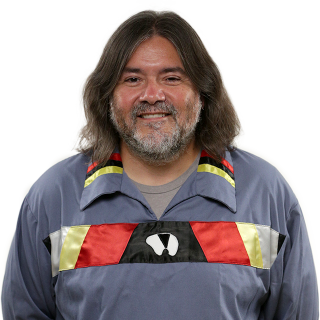November 10, 2022
7 PM EST
Free and open to the public.
 The Newark Earthworks Center is hosting Dr. Matthew Fletcher (Grand Traverse Band of Ottawa and Chippewa Indians), University of Michigan, who will present "Muskrat versus Canary: The Future of Federal Indian Law" on Zoom at 7 PM EST.
The Newark Earthworks Center is hosting Dr. Matthew Fletcher (Grand Traverse Band of Ottawa and Chippewa Indians), University of Michigan, who will present "Muskrat versus Canary: The Future of Federal Indian Law" on Zoom at 7 PM EST.
Event has passed.
Federal Indian law and policy is marked by dramatic confrontations between paradigms described metaphorically, such as George Washington's "Savage as the Wolf" policy or Felix Cohen's "Miner's Canary" parable. These metaphors reflect that reality that federal Indian law and policy was imposed on tribal nations, usually without their consent or consultation. Even today, five decades after the beginning of the tribal self-determination era, the Miner's Canary parable remains the most-used shorthand metaphorical shorthand to describe Indigenous affairs in the United States But in my view, those metaphors are no longer useful to describe tribal nations. Tribal nations now possess agency and, occasionally, significant political and economic power. Congress and the Executive branch have largely embraced and enabled tribal self-determination. The United States Supreme Court has not. Or has it? Tribal nations have fared better in the Supreme Court since 2014 than in any other period of American history. Even so, the Court is paradigmatically split. In my scholarship, I have adopted the Anishinaabe creation story about the lowly, but heroic, Muskrat as my metaphor to describe modern tribal nations. The Supreme Court is poised to either accept and enable the new paradigm of tribal self-determination or eradicate it in favor of keeping tribal nations weak and passive. It is a paradigmatic battle of the Muskrat versus the Canary.
7:00 – 8:00 PM EST
Carmen Zoom, Registration Required.
We strive to host inclusive, accessible events that enable all individuals, including individuals with disabilities, to engage fully. To request an accommodation or for inquiries about accessibility, please contact Dr. John Low at 740-755-7857 or low.89@osu.edu . At least two weeks' advance notice will help us to provide seamless access.
There will be 15 minutes for a Question and Answer session at the end of the webinar. Please submit your questions in the chat.
Matthew L.M. Fletcher (Grand Traverse Band citizen), is the Harry Burns Hutchins Collegiate Professor of Law at Michigan Law. He teaches and writes in the areas of federal Indian law, American Indian tribal law, Anishinaabe legal and political philosophy, constitutional law, federal courts, and legal ethics, and he sits as the Chief Justice of the Pokagon Band of Potawatomi Indians and the Poarch Band of Creek Indians.
Professor Fletcher also sits as an appellate judge for the Cabazon Band of Mission Indians, the Colorado River Indian Tribes, the Grand Traverse Band of Ottawa and Chippewa Indians, the Hoopa Valley Tribe, the Lower Elwha Klallam Tribe, the Mashpee Wampanoag Tribe, the Match-E-Be-Nash-She-Wish Band of Pottawatomi Indians, the Nottawaseppi Huron Band of Potawatomi Indians, the Rincon Band of Luiseño Indians, the Santee Sioux Tribe of Nebraska, and the Tulalip Tribes.
Speaker series as part of Indigenous Ohio: OSU and Native Arts and Humanities Past and Present grant. Sponsored by the Newark Earthworks Center and the Global Arts + Humanities Discovery Theme.
Kind thanks to Jared Gardner Department of English and Director of Popular Culture Studies for assisting in set up and hosting this web presentation.
No comments:
Post a Comment